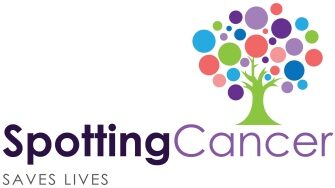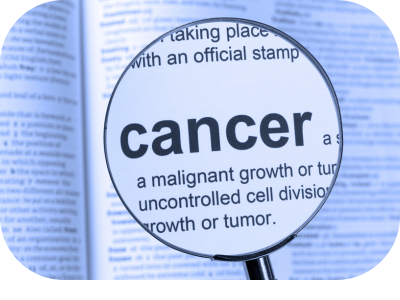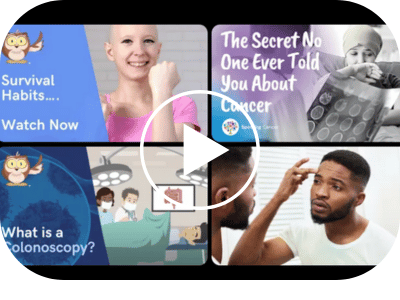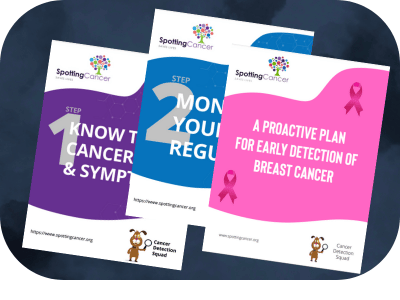1 in 2 men,
1 in 2 women,
1 in 330 children...
will have cancer in their lifetime.
According to American cancer society statistics, 96% of most cancers are curable if detected early and treated before spreading.(1)
Act Now!
Implement the 5-step plan to
CANCER
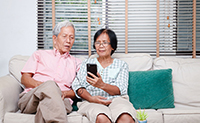
Step 1:
Signs & Symptoms
To monitor yourself for early cancer detection, you must know the cancer signs and symptoms. A listing of the various signs and symptoms are just a click away.

Step 2:
Body Monitoring
Cancer grows 24/7. Therefore, you must monitor your body to detect any abnormality between regular doctor visits or screenings. The tools and methods are described in this section.

Step 3:
Family History
Knowing and charting your family medical history will help your medical team as they develop a long-term wellness program suited to your unique needs.

Step 4:
Medical Team
Cancer is not self-healing. Therefore, when spotting a cancer sign or symptom, consider it a red flag that should cause you to consult your medical team immediately to determine if it is cancer or another illness.
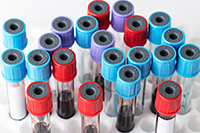
Step 5:
Screening & Testing
Not all cancer signs and symptoms are visible. You should establish specific times for the various cancer screening and tests with your medical team.
What does wearing a seatbelt
have to do with cancer?
A regular body monitoring habit is same as a seatbelt habit… Check out video as to why.
Learn More With Our Free Resources
Join the Cancer Detection Squad
Join Free Now!
Make a Tax-Deductible Charitable Donation
Donate Now
Take action!

Hi, I’m Oakley! I’m here to inspire wisdom & learning about what you can do to spot cancer early. Follow my lead, and I’ll show you how to #SpotandSurvive!
Check Out Our Video Library
Go to Videos
Join the Cancer Detection Squad
Learn How
Make a Charitable Donation
Donate Now
Print FREE Guides to Spot & Survive
Learn More
As a nonprofit organization, SpottingCancer.Org relies on donations to fund our outreach efforts. However, what is just as important as monetary donations is the donation of time and energy that individuals like you make towards learning about cancer-spotting habits and then spreading that knowledge to your friends and loved ones.
